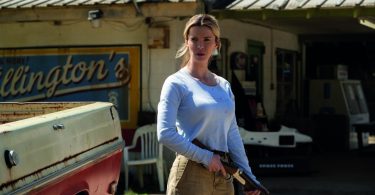When did Benedict Cumberbatch become the man of the moment? The simple answer would be since the worldwide success of the Sherlock series and new international fanbase/sex symbol status. It seems that the world is falling in love with all things British – be it One Direction, Downton Abbey or Tom Hiddleston, Britishness and the British accent is cool… for now.
Cumberbatch had been flirting with the big screen for some time but it was as the deranged Khan in Star Trek Into Darkness which really made him a force to be reckoned with. He later landed roles in 12 Years a Slave, The Fifth Estate and the Hobbit trilogy. If you believe the rumours, he also provides the voiceover in the much-hyped Star Wars trailer and he was recently announced as Marvel’s Doctor Strange.
The last time Cumberbatch led a cast was 2013’s The Fifth Estate where he played WikiLeaks founder, Julian Assange. The film bombed at the box office but Cumberbatch won praise for his performance. Great acting performances seem to be a constant with any role he takes on, so could the Academy be calling after his performance in historical thriller, The Imitation Game?
The film tells the real-life story of Alan Turing (Cumberbatch) and his team of code-breakers attempting to crack the ‘unbreakable’ Enigma code used by the Germans during World War II. ‘Crack the code. Win the war’ the poster for the film states – sounds simple enough. While the team unite and make progress, the film jumps backwards and forwards in Turing’s problematic life to expose the biggest enigma of all: the character himself.
Cumberbatch adapts to the role of Turing expertly – he has certainly had his experience playing socially awkward geniuses. The audience is gripped by his fragile, informative and, in places, heart-warming portrayal of a man whose discoveries (both scientific and personal) went unrecognised and unpardoned for so long.
Apart from knowing about Turing machines and about him being the father of the computer model, I must confess my ignorance at not knowing much about Alan Turing and his achievements. Luckily, the time-shifting element in the film is an incredibly effective story-telling motif, allowing the audience to piece together the man behind one of the world’s greatest inventions. While love is at the heart of the film, romance (real-life or imagined) is rightfully relegated in place of character-building scenes.
The film boasts a strong supporting cast including: Keira Knightley in her most credible role since 2012’s Anna Karenina, as Joan Clarke; Matthew Goode as the handsome but power-hungry, Hugh Alexander, and Mark Strong as the Chief of MI6. The two-hour running time slips away thanks to purposeful and emotive interactions between all key characters, led by a charismatic leading man.
While the film may have benefitted from more of an insight into Turing’s youth and family life (flashback scenes are limited to Turing’s boarding school days), perhaps this level of ‘glossing over’ adds to the element of intrigue towards the character’s own enigma. Ultimately, the film falls down in not knowing whether it wants to be a biopic or a study of what went on behind closed doors during the war.
All in all, a well-rounded, informative film which provokes useful moral debates about the concealing and revealing of secrets.
4/5








